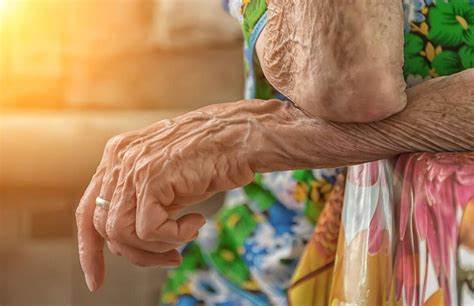
✨ Collagen and Aging: What You Need to Know to Keep Skin Strong
Collagen and Ageing. So then, you’ve noticed more wrinkles, sagging, or that “paper-thin” feeling in your skin. And there’s a good chance collagen loss is part of the reason.
Above all, Collagen is one of the body’s most important proteins. Especially, when it comes to aging well and maintaining strong, healthy skin. Here, let’s dive into what collagen is. Also, what happens to it as we age. And what you can do to preserve it.
🧬 What Is Collagen and Ageing?

Collagen and Ageing. For example, collagen is the most abundant protein in the human body. Besides, making up around 30% of total protein content. Subsequently, it acts as a scaffold for your body’s structure, holding everything together..
So then, there are at least 16 types of collagen, but the most common (Types I, II, and III) are responsible for:
- Skin elasticity and firmness
- Joint support and cushioning
- Bone strength
- Tendons and ligaments
- Blood vessel lining
- Gum and dental health
However, in simple terms, collagen is what keeps our skin plump, smooth, and resilient. In addition, our joints and tissues strong and flexible.
📜 A Brief History of Collagen Research

Collagen and Ageing. By the way, collagen has been used in medical and cosmetic treatments for centuries. Furthermore, in the early 1900s, it was studied for wound healing and reconstructive surgery. However, by the 1980s and 90s, collagen injections became popular in cosmetic dermatology to reduce wrinkles.
As a result, more recently, collagen supplements have entered the mainstream — with powders, capsules, and drinks promising stronger skin, joints, and nails.
Consequently, scientific studies now support many of these claims, especially in aging adults.
⏳ Collagen and Aging: What Happens?

Collagen and Ageing. Subsequently, after age 25, your body gradually starts producing less collagen each year. In this case, the decline accelerates after 40. Consequently, by age 60, you may have lost over 50% of your natural collagen production.
Why This Matters:
- Skin becomes thinner and drier
- Wrinkles and sagging become more visible
- Wound healing slows
- Bones and joints may weaken
- Hair becomes finer and brittle
One visible sign? Thin, crepey skin, especially on the hands, neck, and arms — a common concern for many older adults.
📉 What Damages Collagen?

Besides natural aging, certain lifestyle and environmental factors can speed up collagen breakdown:
- Excess sun exposure (UV damage)
- Smoking
- High-sugar or high-carb diets
- Excess alcohol consumption
- Pollution and toxins
- Lack of sleep or chronic stress
These factors trigger inflammation and free radical damage, which degrade collagen faster than your body can replace it.
⚠️ Symptoms of Collagen Loss

- Thinning skin that bruises easily
- More pronounced wrinkles and fine lines
- Dryness or itchiness
- Sagging or drooping, especially around the jawline
- Joint pain or stiffness
- Weaker nails or hair loss
- Slower recovery from cuts or skin injuries
💊 Treatment Options: Can You Restore Collagen?

While we can’t stop collagen loss entirely, we can slow it down and support new production with the right strategies.
1. Collagen Supplements
- Most supplements use hydrolyzed collagen peptides — easier to absorb
- Studies show improved skin elasticity, hydration, and wrinkle depth with regular use
- Look for Type I & III collagen (for skin, bones, tendons)
🔹 Tip: Choose a supplement with added Vitamin C or hyaluronic acid, which helps collagen synthesis
2. Topical Products
- Retinol (Vitamin A) creams
- Vitamin C serums
- Peptides and hyaluronic acid in skincare
These don’t replace collagen but can stimulate natural production and protect existing skin structure.
3. Dermatological Treatments
- Microneedling
- Laser resurfacing
- Collagen injections or fillers
These procedures should always be done by professionals and are best for those wanting more noticeable cosmetic results.
🥗 Collagen-Boosting Foods: Eat for Stronger Skin
Food can help your body build and protect collagen naturally. Here are some of the best:

🍗 Protein-Rich Foods
- Chicken, turkey, beef, eggs — all contain amino acids essential for collagen
🐟 Omega-3s
- Salmon, mackerel, and flaxseed reduce inflammation and preserve skin structure
🍊 Vitamin C-Rich Foods
- Citrus fruits, strawberries, red peppers — needed to build new collagen
🥦 Zinc and Copper Sources
- Pumpkin seeds, cashews, shellfish — these minerals help collagen form correctly
🍅 Antioxidants
- Berries, tomatoes, spinach, and kale protect against collagen breakdown
💧 Hydration
- Drink plenty of water to keep skin plump and prevent dryness
🧴 Daily Habits That Help Protect Collagen
- Use broad-spectrum sunscreen every day
- Don’t smoke
- Get 7–8 hours of quality sleep
- Practice stress-reduction techniques
- Use gentle, moisturizing skincare daily
- Stay physically active to support circulation and skin renewal
💬 Final Thoughts
Collagen is more than just a beauty buzzword — it’s a vital part of aging well. From healthy skin and joints to stronger bones and better healing, collagen plays a key role in your body’s resilience.
The great news? It’s never too late to support your skin and strengthen what’s underneath. Whether through supplements, lifestyle changes, or collagen-rich foods, you can give your body what it needs to look and feel better at every age.
Pensioner Fitness – Helping You Stay Strong, Steady, and Self-Reliant
DONATE
DONATE
Pensioner Fitness
Pensioner Fitness Awards
THE BUSINESS CONCEPT, BEST IN BUSINESS AWARDS
- “MOST INSPIRING SENIOR WELLNESS WEBSITE 2023“
THE GLOBAL HEALTH AND PHARMA, FITNESS AND NUTRITION AWARDS
2. “BEST SENIOR FITNESS AND NUTRITION SPECIALIST 2023“
THE MIDDLE EAST AND AFRICA BUSINESS AWARDS
3. “ MOST INCLUSIVE FITNESS PROVIDER 2023″
THE CORPORATE LIVE WIRE GLOBAL AWARDS 2023/2024
4. ” FITNESS ADVISORY PLATFORM OF THE YEAR“ 2023/2024
In Conclusion
Collagen supplements have become a popular option for many people over the years. But is collagen good for seniors? Yes, this care option is healthy and beneficial for older adults. Collagen for seniors can be an important medical care option that provides many benefits and supports their health in a variety of ways. Understanding why and answering the question “what is the best collagen for seniors?” can help you plan a treatment plan for yourself or a loved o ne in your life.
Important Note *
Remember that everyone is different, it is ultimately YOUR RESPONSIBILITY to find what your body responds to. So please do your due diligence before trying anything new, including getting Medical Advice to ensure your safety and peace of mind.
Connect with me and leave a comment